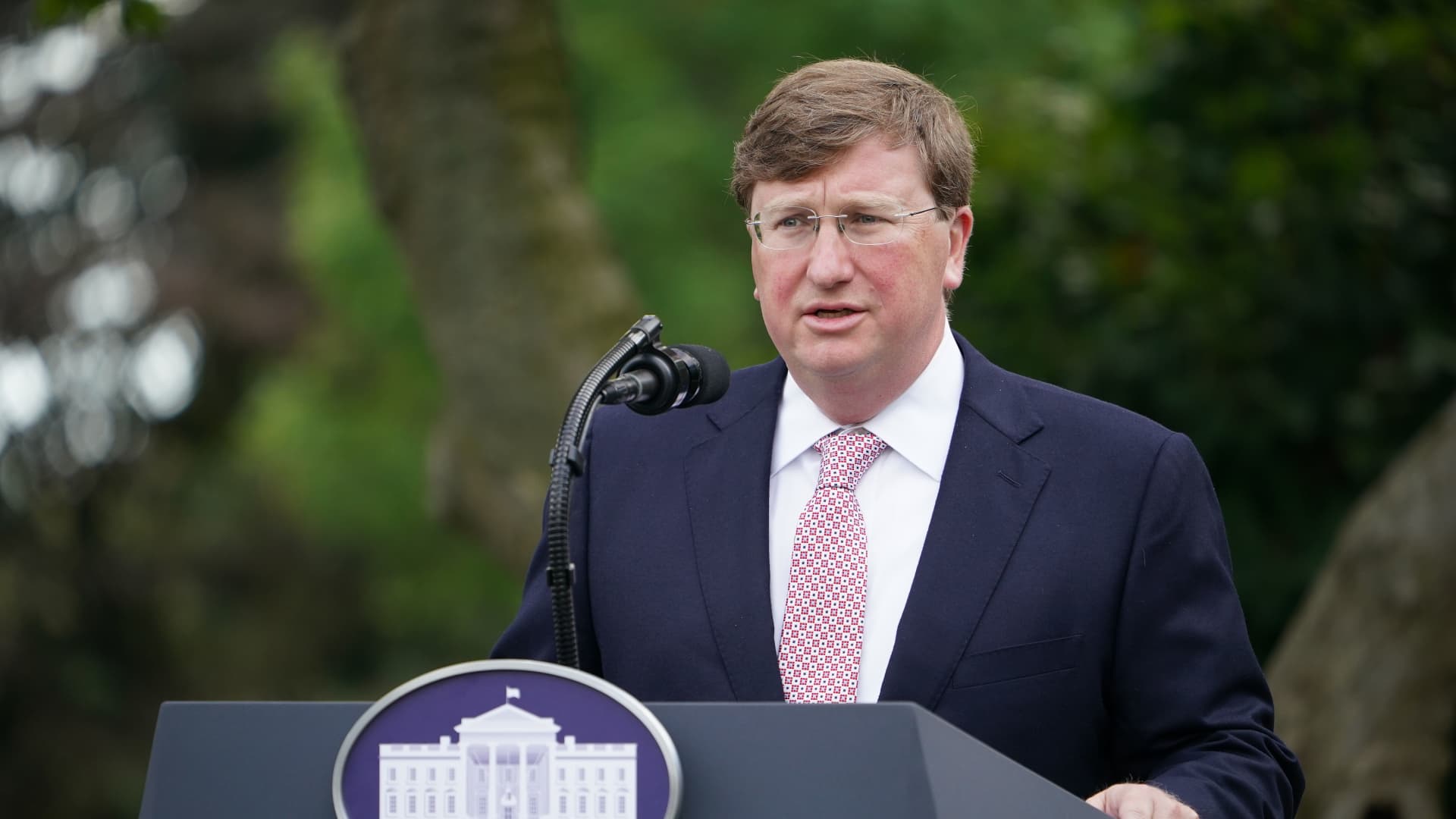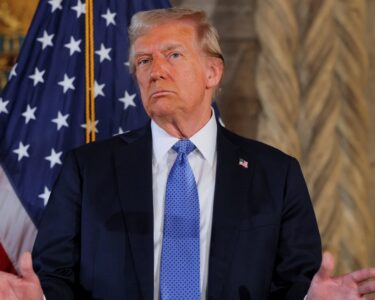Mississippi Gov. Tate Reeves, a Republican, faces a surprisingly competitive race Tuesday as his Democratic challenger Brandon Presley champions expanding Medicaid, a position that has broad support among voters from both parties in the deeply conservative state.
Presley was pressing Reeves hard heading into Tuesday night with the race having shifted from likely to lean Republican, according to the Cook Political Report. The election will head to a Nov. 28 runoff if neither candidate secures a majority of the vote.
Follow live Mississippi election results from NBC News
Reeves, 49, is one of the least popular governors in the country, with a 46% approval rating, according to a Morning Consult poll released last week. He is mired in a scandal over millions of dollars of state welfare money that were misused while he was lieutenant governor.
Presley, 46, has raised significantly more money than Reeves, hauling in $11.3 million in contributions this year compared to the Republican’s $6.3 million, according to state filings.
Presley focused his campaign on outreach to Black voters, the backbone of the Democratic Party in Mississippi. He has the backing of U.S. Rep. Bennie Thompson, the state’s most powerful Black politician.
Presley is a commissioner for Mississippi’s public utility regulator who previously served as mayor of the small town of Nettleton. He is a cousin of music legend Elvis Presley.
Presley’s campaign focused on expanding Medicaid to 220,000 Mississippians who do not currently qualify for the health insurance program for lower income individuals. Reeves has opposed expanding Medicaid, repeatedly dismissing the program as “welfare.”
Presley also campaigned on addressing the hospital crisis in Mississippi’s rural communities, arguing that expanding Medicaid would help boost the facilities’ sagging finances. More than 40% of Mississippi’s 73 rural hospitals are at risk of closing, according a recent report.
Reeves proposed a reimbursement plan in September that aims to boost hospital funding by $689 million.
Health care was a central issue for voters heading into the election. More than 90% of Mississippi voters said they were concerned about the hospital crisis and 72% said they support expanding Medicaid, according to a Mississippi Today/Siena College poll published in September.
Tuesday’s vote is the first held since Mississippi changed how it elects the governor, abandoning a system that has its origins in the racist Jim Crow era.
In 2020, Mississippi voters abolished the old method that required a gubernatorial candidate to win a majority of electoral votes from state legislative districts in addition to the statewide popular vote.
The old system was adopted during the infamous 1890 Mississippi constitutional convention that disenfranchised Black voters, outlawed interracial marriage and segregated schools by race.
The governor is now elected by popular vote, with a runoff held if no candidate receives a majority.






